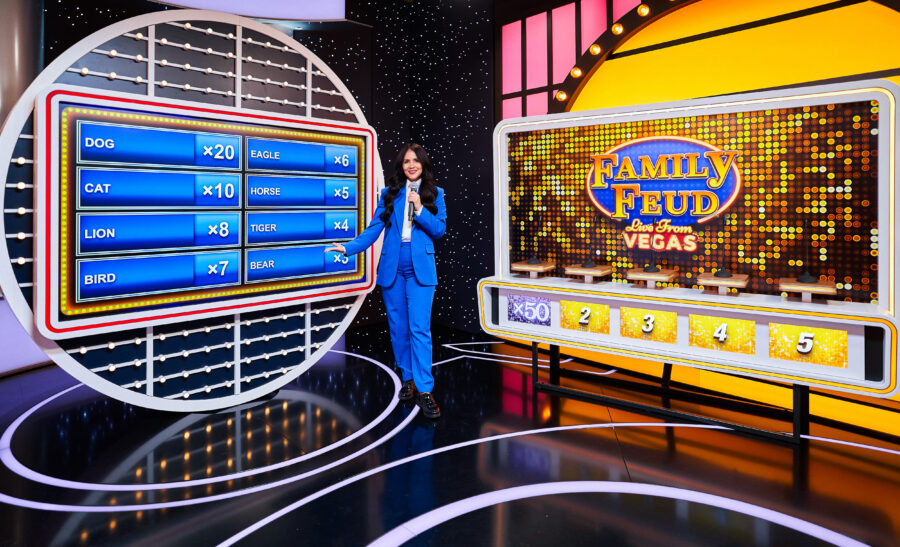MGM expands global virtual casino platform

MGM has expanded an igaming platform that it says will give players around the world a virtual casino experience streamed directly from Las Vegas.
The platform, called Live from Vegas, allows players from countries including the UK, Brazil, Mexico, and Canada to play games such as blackjack, roulette, and baccarat, along with a game-show-style betting version of Family Feud.
According to MGM, the service enables thousands of users to join the same game session simultaneously. Players can interact with live game presenters and view the real casino environment in the background, with hotel guests visible behind the dealers, which they say adds to the immersive feel.
To operate the platform continuously, the company says it has trained 90 dealers, with training lasting between three and six weeks, focusing on gameplay and presentation. Dealers work under stage names to maintain anonymity, a precaution that the company says is for privacy and security protocols.
Staff also have reportedly been trained to recognize problematic behaviors and support moderation, as part of the company’s commitment to responsible gambling.
Although the platform isn’t legal in the US because of regulatory restrictions, MGM says it wants to expand access if the legal climate in the US changes.
MGM’s online casino platform comes a week after Las Vegas Sands closed its igaming project, Sands Digital Services, resulting in the loss of 400 jobs.
Charlotte Capewell brings her passion for storytelling and expertise in writing, researching, and the gambling industry to every article she writes. Her specialties include the US gambling industry, regulator legislation, igaming, and more.
Dig Deeper
The Backstory
Digital push sets the stage
A reshaped pecking order in U.S. gambling has been building for more than a year as operators shift resources to online products, exclusive content, and omnichannel play. MGM Resorts has been blunt about the strategy. Chief Executive Bill Hornbuckle told investors that digital is the top focus in 2025 with growth tied to new igaming states and BetMGM’s momentum, projecting a roughly $2.5 billion run rate for the sportsbook and a half-billion for MGM’s broader internet group with Brazil in view. He framed Las Vegas reinvestment as the second priority, then New York, Brazil, and Japan. The comments reinforced where capital and product road maps are pointed and why competition around player acquisition, retention, and cross-sell has sharpened in recent quarters. Hornbuckle also said the company trimmed splashy ad spending to prioritize product upgrades, signaling a pivot to features, single-wallet integration, and same-game parlays over brand-heavy buys that failed to deliver efficient returns. Those remarks set expectations that product-led growth and licensing milestones will carry more weight than marketing noise as the industry’s next leg unfolds. For context, see how MGM laid out that agenda in his 2025 digital focus briefing.
MGM’s two-front expansion
MGM’s expansion plan has unfolded on two fronts: a live-streamed casino product aimed at international markets and a regulatory march to consolidate sportsbook control in Nevada. Internationally, MGM expanded its igaming platform with Live from Vegas, a product that streams table games and a game-show format to players in the U.K., Brazil, Mexico, and Canada. The company trained 90 dealers, uses stage names for privacy, and touts tools to flag risky behavior. Although U.S. players cannot use the platform because of regulatory limits, the build shows MGM preparing for a scenario where laws change. The timing was notable, coming a week after Las Vegas Sands shuttered its Sands Digital Services unit, a signal that not all incumbents will chase direct-to-consumer igaming at scale in the near term.
On the home front, the operator is working to formalize control where its brand already dominates foot traffic. BetMGM, the joint venture with Entain, moved to take over MGM Resorts’ nine Las Vegas sportsbooks. The plan would centralize operations at Mandalay Bay and run the remaining books as satellites. Approval would clean up an awkward split created when BetMGM launched its Nevada app but MGM retained operational control. Licensing discussions surfaced concerns about the scope of BetMGM’s role, which the company is trying to resolve with a structured handoff during a slower betting window to reduce disruption. The reorg underscores a broader shift from venue-led books to centralized trading and tech stacks under a single operator. Read the details on BetMGM’s planned takeover of MGM’s Nevada sportsbooks.
Content exclusivity becomes a lever
While MGM tightens its operating model, rivals have been escalating the content race. Caesars leaned on its scale to secure a first-of-its-kind omnichannel slot rollout, launching IGT’s Kitty Glitter Grand simultaneously online and on casino floors in Atlantic City. The game is live on Caesars’ online brands in Michigan, New Jersey, Pennsylvania, West Virginia, and Ontario, a footprint that gives the company a path to market firsts that can translate into measurable share gains. The gambit matters for two reasons. First, it sets expectations among suppliers that distribution advantages are now a competitive currency. Second, it pressures peers to match with their own exclusives or features that generate repeat visits and longer sessions without leaning solely on bonusing. See Caesars’ Kitty Glitter Grand omnichannel launch for how the operator framed the strategy and where it sees payback from “first-to-market” titles.
MGM’s answer has been to polish its own product, streamline wallets, and expand live formats that carry brand equity from Las Vegas. The company’s decision to pull back on expensive media and refocus on features reflects a thesis that sticky content and integrated experiences do more to curb churn than headline offers. If MGM’s sportsbook consolidation in Nevada is approved and its international live casino gains traction, the operator will have more control over cross-sell paths from on-property to app and, eventually, to more states if igaming expands.
Gamification and retention tools move to the foreground
Operators are not just competing on inventory. Engagement tooling has become core to the playbook. Soft2Bet is showcasing its Motivational Engineering Gaming Application at the Global Gaming Expo after the platform won Product Innovation of the Year at the 2025 Global Gaming Awards Americas. The company says the system personalizes experiences with gamification tools that lift engagement and retention while supporting responsible play, and it highlighted results in Ontario with the ToonieBet brand. The push reflects a wider shift toward measurable lifetime value rather than raw acquisition. In markets where bonus burn is high and customer acquisition costs are rising, gamification that nudges responsible time-on-platform can be a differentiator. Explore Soft2Bet’s G2E plans for its gamification platform to see how vendors are pitching operators on loyalty and differentiation without inflating promo spends.
For MGM and peers, these tools intersect with omnichannel strategy. A single wallet, tailored game paths, and live-streamed tables can feed into goal-oriented challenges or rewards that keep customers moving between sportsbook, live casino, and slots. If Caesars’ omnichannel titles boost retention and MGM’s live-streamed tables deepen engagement abroad, gamification layers could sustain those gains without outsized marketing budgets.
Responsible gambling pressures shape growth plans
As operators diversify content and accelerate digital growth, responsible gambling programs are under closer scrutiny. MGM Resorts and BetMGM expanded support for problem gambling research and access to care, broadening the Kindbridge Behavioral Health referral program to all BetMGM online jurisdictions and adding time-out features and QR-based resources across channels. The companies also plan to work with University of Nevada Gaming Law students on responsible gaming education. The moves are partly defensive, acknowledging regulatory and public expectations as digital wagering scales and live-streamed content blurs the line between casino floors and mobile screens. The effort is also pragmatic: proactive safeguards can ease licensing talks, particularly when operators seek to consolidate control or enter new states. Read more on MGM and BetMGM’s expanded responsible gambling initiatives.
These steps dovetail with Live from Vegas, which trains dealers to spot problematic behavior, and with sportsbook consolidation in Nevada, where regulators weigh oversight and accountability alongside operational efficiency. As more states debate igaming, operators that show auditable controls, clear referral pathways, and consistent messaging are better positioned to win approvals.
What’s next and why it matters
The stakes are straightforward. If New York, Maryland, or Illinois open full igaming, the companies with mature content pipelines, unified wallets, and disciplined retention playbooks will be primed to capture disproportionate share. Hornbuckle noted that three states already account for two-thirds of the top line in igaming, underscoring how a single large state can swing results. For MGM, aligning BetMGM operations in Nevada, refining product over paid media, and building international live casino capacity are all groundwork for a broader rollout when laws allow. For Caesars, locking in omnichannel exclusives offers near-term differentiation that can be replicated if more jurisdictions legalize.
The industry’s consolidation tendencies will continue around technology and content as operators look to cut cost per acquisition and lift lifetime value without escalating promotion wars. Those that blend exclusive titles, live formats that showcase brand, and gamified retention—while passing regulatory muster on responsible play—will have an edge when the next crop of states opens. The backstory is less about a single launch or license and more about how operators are sequencing product, operations, and compliance to be ready when the map changes.








